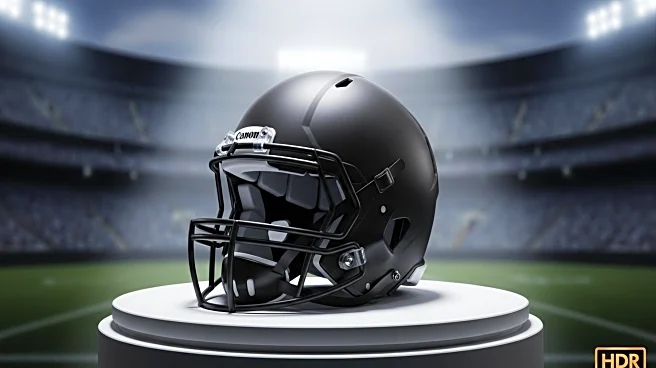What is the story about?
What's Happening?
Baltimore Ravens quarterback Lamar Jackson has issued an apology following an incident where he shoved a Buffalo Bills fan during a game. The altercation occurred after Jackson threw a touchdown pass and was celebrating with teammates near the front row of Highmark Stadium. The fan, wearing a Bills jersey, hit Jackson and his teammate DeAndre Hopkins on the helmet, prompting Jackson to push the fan, who fell backward. Jackson expressed regret for his actions, advising fans to 'chill' and keep their hands to themselves. The fan involved was ejected from the stadium and banned indefinitely from Bills and NFL stadiums. Jackson has not been contacted by the NFL regarding any disciplinary action.
Why It's Important?
This incident highlights ongoing concerns about fan behavior at NFL games, emphasizing the need for increased security and respect between players and spectators. The NFL's decision to ban the fan underscores the league's stance on maintaining a safe environment for players. Jackson's apology and call for respect may influence how players and fans interact in the future, potentially leading to stricter enforcement of conduct policies at stadiums. The situation also raises questions about the balance between passionate fan engagement and maintaining decorum during sporting events.
What's Next?
The NFL may review its policies regarding fan interactions and stadium security to prevent similar incidents. Lamar Jackson's discussions with Ravens management and coaching staff suggest internal measures may be taken to address player conduct in high-pressure situations. The league's response, or lack thereof, could set a precedent for handling future altercations between players and fans. Stakeholders, including team officials and security personnel, may consider implementing additional training or guidelines to ensure player safety and fan compliance.
Beyond the Headlines
The incident reflects broader societal issues regarding sportsmanship and respect in competitive environments. It may prompt discussions about the cultural expectations of fan behavior and the responsibilities of athletes as public figures. The event could lead to a reevaluation of how sports organizations address misconduct and the role of athletes in promoting positive interactions with fans.
















